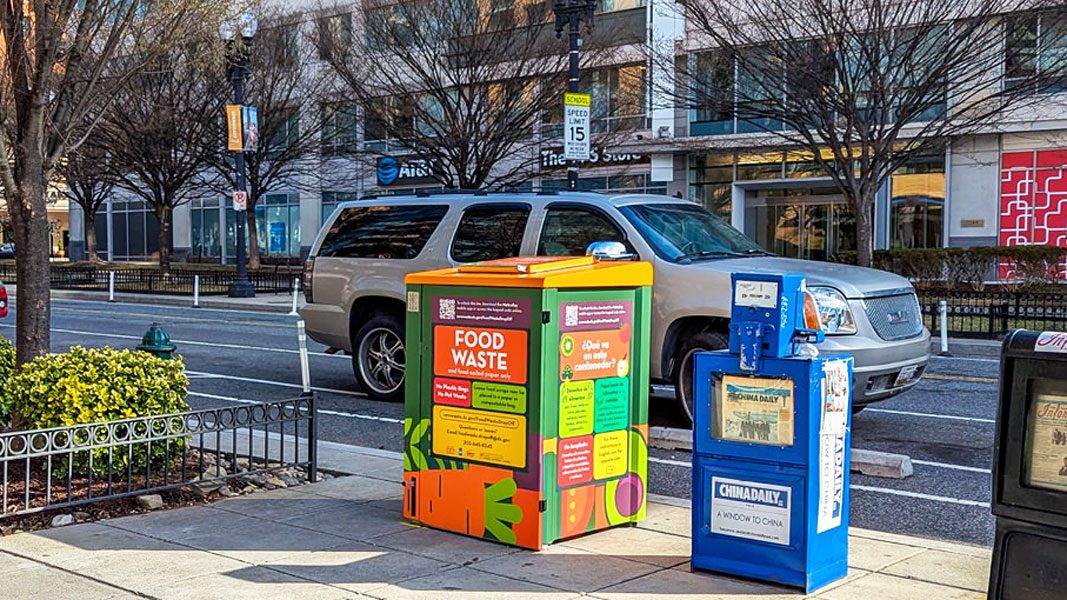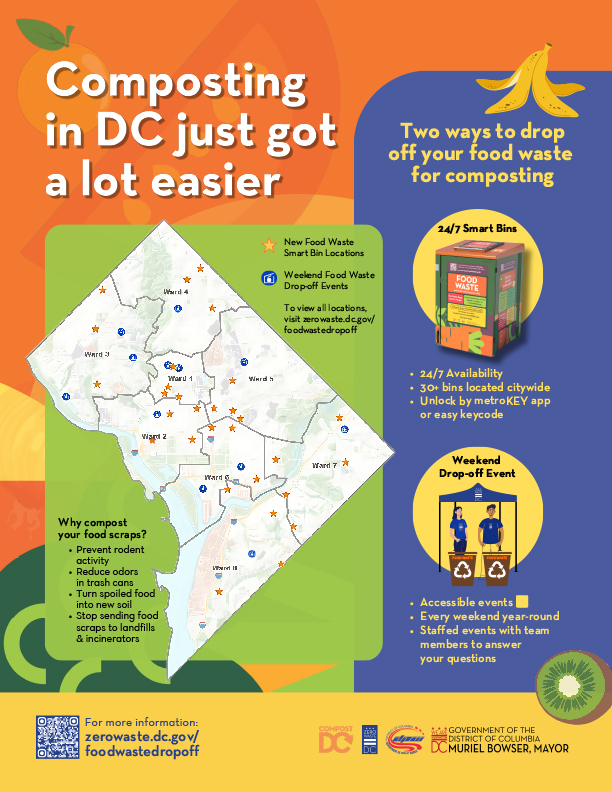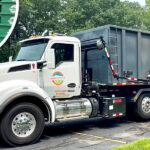Top: There are 31 “smart” drop-off bins throughout Washington, DC. Photo courtesy of the District of Columbia Department of Public Works
Food scraps drop-off at farmers markets in the District of Columbia (DC) started in 2017 in the city’s eight wards. To expand accessibility, the DC Department of Public Works (DPW) began installing 30 metroStor smart drop-off bins in February 2025 throughout the District. To test the concept prior to city-wide rollout, a pilot bin was set up on the George Washington University campus in July 2024; about 600 users registered to use the bin from July 2024 to February 2025. To receive feedback on where residents thought the smart bins should be installed in their community, DPW hosted community engagement meetings in all eight wards. Locations were ultimately chosen to ensure accessibility for all residents, particularly those residing in multi-family properties, such as apartment buildings and condominiums.
Since the program began, about 4,700 residents have registered to use the smart bins, which are accessed using the “metroKEY” app or a keypad access code. In May, over 50,000 lbs of food scraps and soiled paper were collected (roughly 1,610 lbs/day). In June, the quantity increased to about 1,700 lbs/day across all 31 bins, according to DPW, bringing the total since the program began to close to 80 tons of food scraps captured. Sensors in the bins monitor fullness levels, which help to optimize collection schedules. The bins are serviced by Compost Cab, a DC-based community composter that brings collected food scraps and soiled paper to the Prince George’s County Organics Composting Facility.
The new drop-off program complements an existing curbside pilot that was rolled out in September 2023 to 9,000 DPW-serviced single-family households. The collection routes are serviced by Compost Crew, which primarily hauls the food waste to the Prince George’s County facility. In June 2025, DPW announced that Mayor Muriel Bowser’s FY26 Budget provides $2.3 million to expand DPW’s weekly residential food waste to 12,000 participants in FY26, with plans to expand further in future fiscal years.














